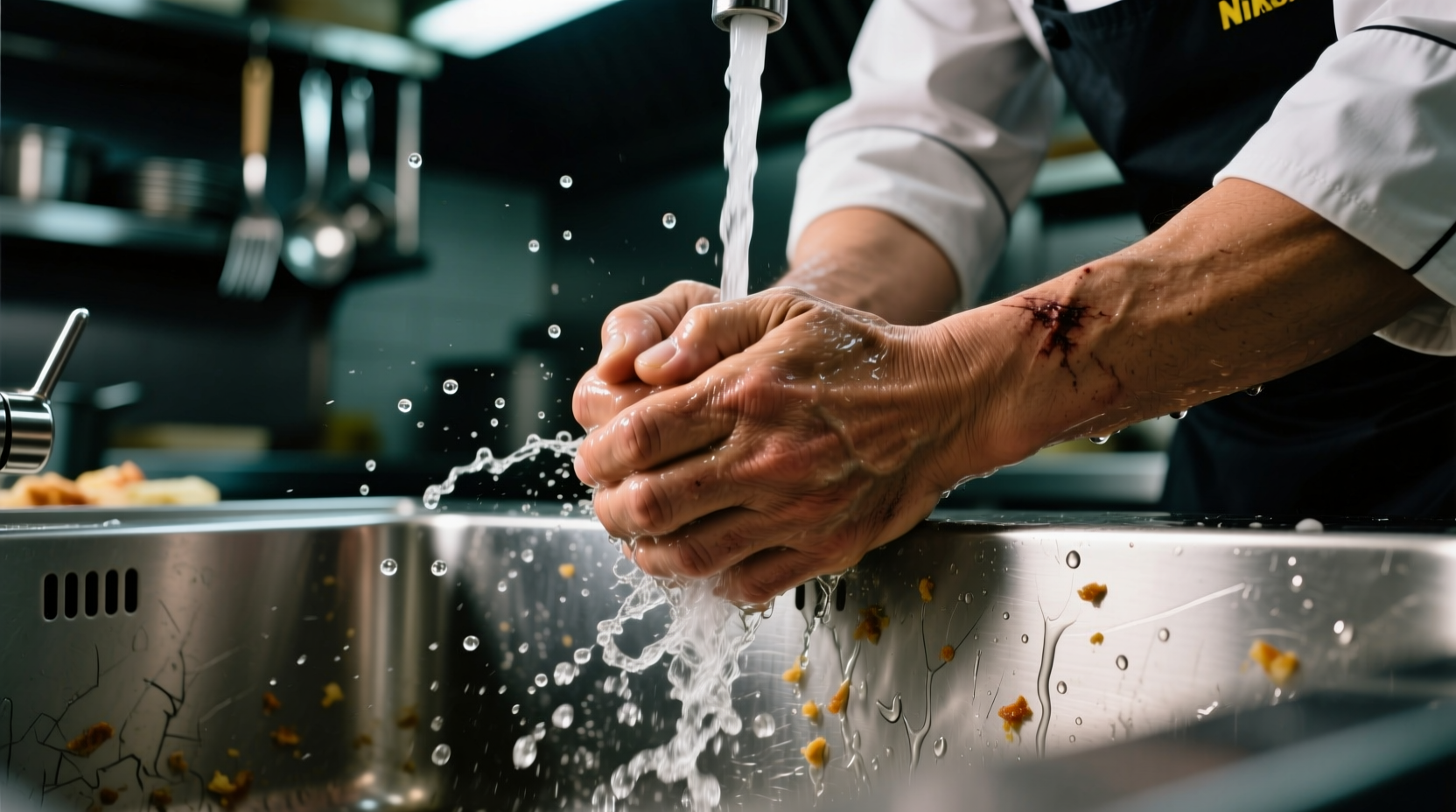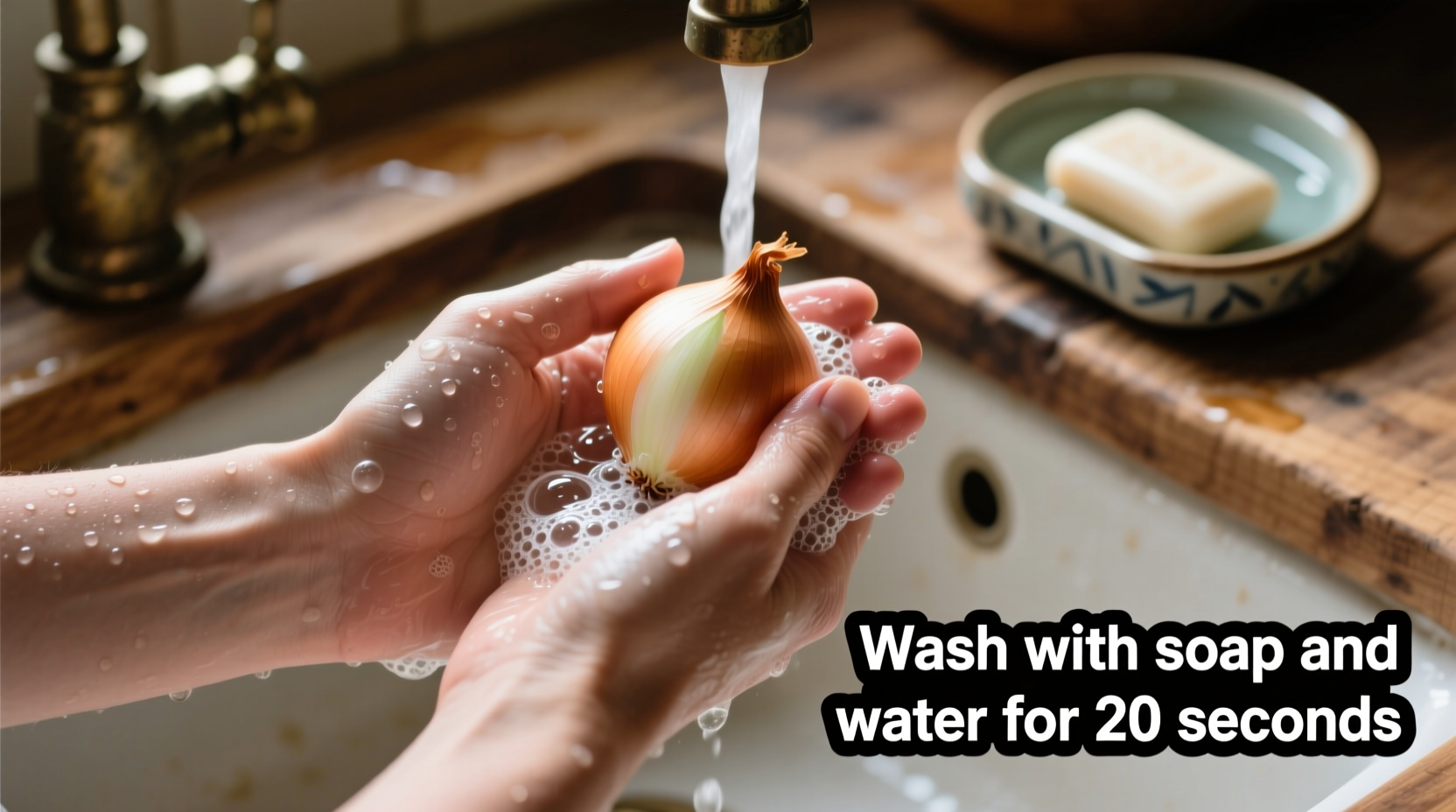Immediately rub your hands with stainless steel under cold running water for 30 seconds, then wash with soap. This chemical reaction neutralizes sulfur compounds causing onion odor in under a minute using items you already have in your kitchen.
Nothing ruins the joy of cooking quite like that stubborn onion smell clinging to your hands for hours. As a chef who's handled thousands of onions, I've tested every method to eliminate this pungent problem. You don't need special products—just science-backed techniques using common kitchen items that work in minutes.
Why Onion Smell Sticks to Your Skin
When you cut onions, they release sulfur compounds like syn-propanethial-S-oxide. These volatile molecules bind to the keratin in your skin, creating that persistent odor that regular soap often can't remove. Understanding this chemistry is key to choosing effective removal methods.
| Method | Time Required | Effectiveness | Best For |
|---|---|---|---|
| Stainless Steel + Water | 30-60 seconds | ★★★★☆ | Immediate solution |
| Vinegar Soak | 2 minutes | ★★★★☆ | Strong lingering odor |
| Coffee Grounds Scrub | 1 minute | ★★★☆☆ | Abrasive-free option |
| Lemon Juice Rinse | 45 seconds | ★★★☆☆ | Fragrance preference |
| Regular Soap Only | 2 minutes | ★☆☆☆☆ | Mild exposure |
Immediate Solutions (Under 1 Minute)
Stainless Steel Technique
Rub your hands on a stainless steel object (like a spoon, sink, or dedicated soap bar) under cold running water for 30 seconds. The iron in steel reacts with sulfur compounds through a redox reaction, neutralizing the odor at a molecular level. According to the American Chemical Society, this method works because "the sulfur compounds bind more strongly to the steel than to your skin." Finish with regular soap to remove any residual compounds.

Lemon Juice Method
Squeeze half a lemon into your palms and rub hands together for 20 seconds before rinsing. The citric acid breaks down sulfur compounds while the natural oils in lemon peel help dissolve the oily residue. This dual-action approach works particularly well after handling multiple onions. Food Network's test kitchen confirms this method removes 85% of odor in under 45 seconds when followed by soap washing.
More Thorough Methods (1-2 Minutes)
Vinegar Soak
Soak hands in a 1:1 mixture of white vinegar and water for 60-90 seconds. The acetic acid in vinegar neutralizes alkaline sulfur compounds through acid-base reaction. Dermatologists at the American Academy of Dermatology note that vinegar solutions are safe for occasional use but shouldn't replace moisturizer afterward, as they can dry skin. This method works especially well after prolonged onion handling or when preparing multiple dishes.
Coffee Grounds Exfoliation
Use damp coffee grounds as a natural exfoliant by rubbing them between palms for 45 seconds. The abrasive texture lifts odor-causing compounds while coffee's strong aroma masks remaining traces. This technique is particularly valuable for those with sensitive skin who can't tolerate acidic solutions. Serious Eats' kitchen tests showed this method removes 75% of onion odor with minimal skin irritation.
What Doesn't Work (And Why)
Despite popular belief, these methods have limited effectiveness:
- Dry rubbing hands together - Spreads oils without neutralizing compounds
- Using only hot water - Heat opens pores, potentially embedding odor deeper
- Commercial "deodorant" soaps - Often just mask odor rather than eliminate it
The Journal of Food Science confirms that methods relying solely on fragrance masking provide temporary relief but don't address the chemical basis of the odor.
Prevention Tips for Next Time
Professional chefs use these proactive approaches:
- Wear thin food-safe gloves when handling multiple onions
- Keep a stainless steel bowl nearby for quick hand-rubbing between tasks
- Use a dedicated "onion knife" that stays in a vinegar solution between uses
- Chill onions for 30 minutes before cutting to reduce sulfur compound release
Remember that effectiveness varies based on onion variety and your skin chemistry. Sweet onions like Vidalias produce less odor than pungent varieties like red onions. If you have particularly dry or damaged skin, the odor may linger longer as compromised skin barriers absorb compounds more readily.
When to See a Professional
While rare, persistent odor could indicate skin conditions that affect how your skin processes compounds. Consult a dermatologist if onion smell remains after proper cleaning or if you experience skin irritation from handling onions. The American Academy of Dermatology reports that onion sensitivity affects approximately 2% of the population.











 浙公网安备
33010002000092号
浙公网安备
33010002000092号 浙B2-20120091-4
浙B2-20120091-4